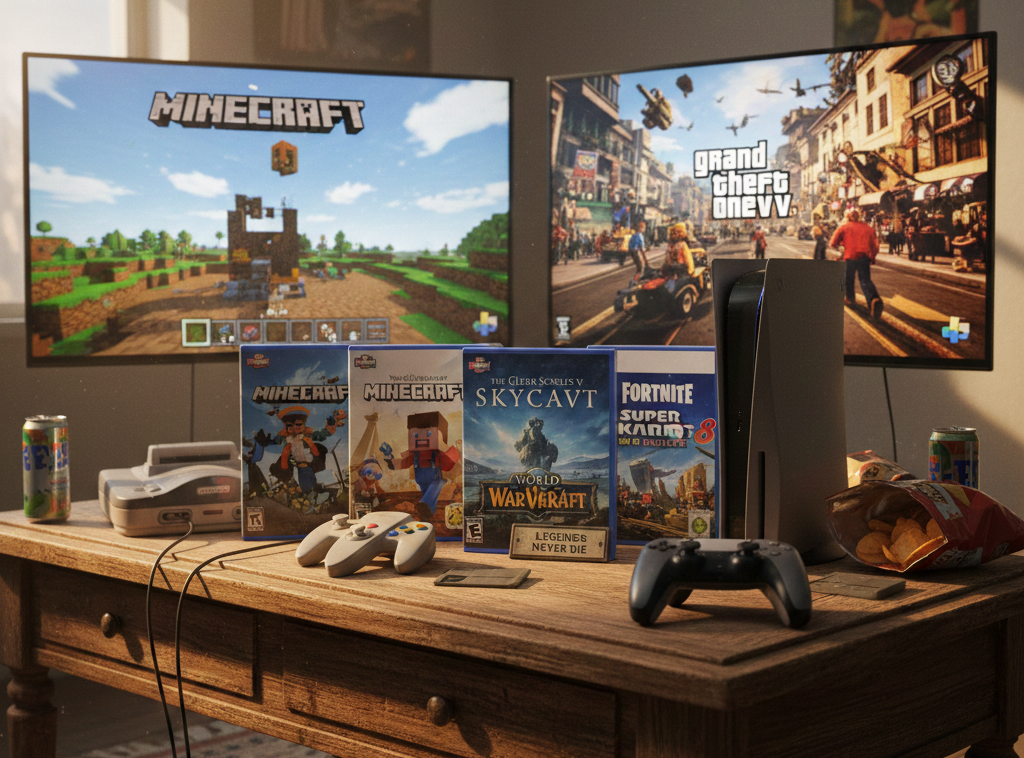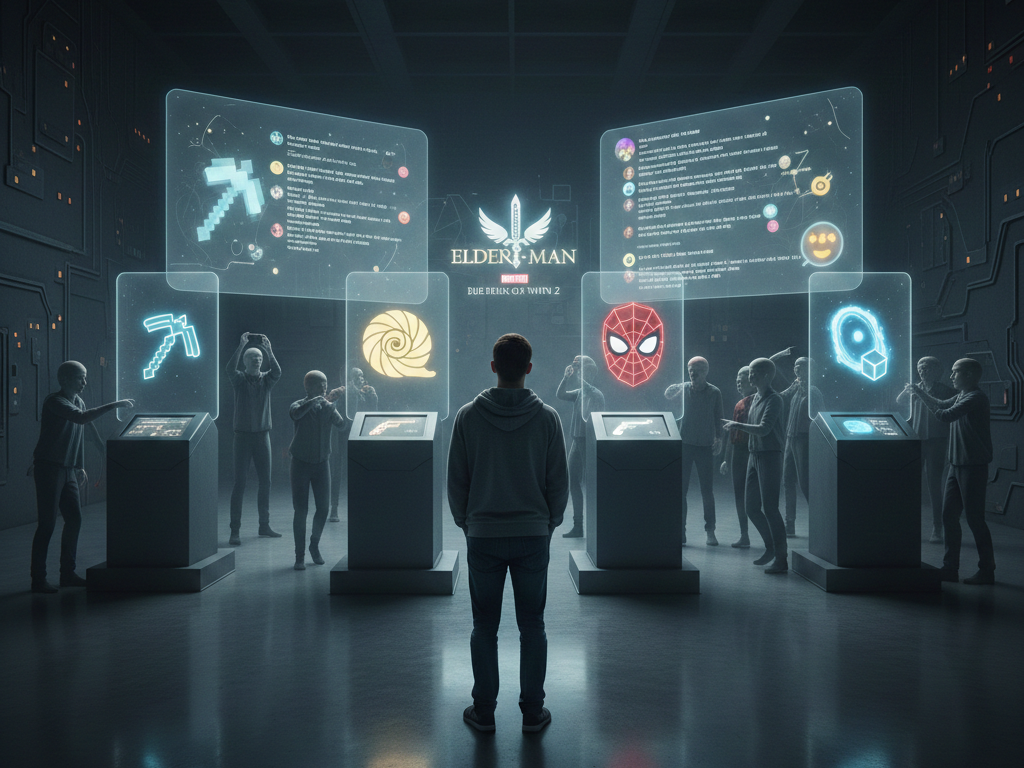Anúncios
Have you ever thought about how tech could change job interview prep? With more competition, we need new ways to stand out. VR interview tools are changing the game, offering immersive learning.
Virtual reality training lets candidates practice interviews in a safe space. It’s a chance to improve skills without the stress of the real thing. These technologies are opening up new paths for career growth, bringing a fresh approach to getting ready for interviews.
Anúncios
The Importance of Job Interview Preparation
Preparing for a job interview is key in today’s competitive job market. Good preparation helps candidates understand what hiring managers want. It also lets them show off their skills and qualifications with confidence.
With technology playing a big role in hiring, being well-prepared is crucial. Candidates who practice their answers, research companies, and improve their interview skills stand out. This hard work boosts their chances of getting the job they want.
Understanding the Nerve-Wracking Nature of Interviews
Job interviews often make candidates feel anxious. This is because of the pressure and uncertainty involved. It can make people doubt themselves and worry about not making a good impression.
Anúncios
Feeling anxious can make it hard to show what you’re capable of. Many struggle with social anxiety and fear of certain questions. Knowing these challenges is key to getting ready for job interviews.
It’s important to build your resilience to deal with interview anxiety. Practicing and getting feedback can help you feel more prepared. Learning how to handle interviews can boost your confidence and control your emotions.
Why Use VR for Job Interview Preparation
Virtual reality changes how we prepare for job interviews. It offers a unique way to practice and improve interview skills. Candidates get to step into a real-like environment where they can hone their skills.
Benefits of Immersive Learning Environments
Virtual reality creates immersive learning environments for job interview prep. These settings are like real-life scenarios. They help candidates build confidence and adaptability.
Through experiential learning, they learn how to present themselves well. They also get better at answering tough questions.
Safe Failure and Learning Opportunities
Virtual reality lets you fail safely. You can try different interview styles without worrying about real-world consequences. This helps you learn and improve your responses.
By practicing in VR, you get better at body language and tone of voice. You learn the important details of communication.
VR Interview Practice Tool: The Future of Interview Training
VR tools are changing how we prepare for interviews. They let candidates practice in real-like scenarios without the stress of a live interview. These tools offer engaging experiences that help users develop key skills.
They are designed for different industries, making sure candidates learn what employers want. This means they can get the right skills for their future jobs.
VR tools mix new technology with creative training methods. They let learners practice interviews over and over. This is different from old ways of training.
They give instant feedback on how well you do. This helps users get better and feel more confident. It’s a big step forward in learning.
Using VR tools can change how we get ready for our careers. It makes sure candidates are ready for any interview. As education keeps getting better, using new tech will be key to preparing the next generation.
How VR Creates Realistic Interview Environments
Virtual reality changes how we prepare for job interviews. It uses realistic interview simulations. This lets candidates practice in environments that feel like real job settings.
They can work with avatars that act like real interviewers. This makes their practice sessions more real and helpful.
Simulating Various Interview Contexts
VR lets you practice in many different interview settings. You can get ready for any kind of interview. This includes formal corporate interviews, casual chats, and even remote video calls.
Each practice session is tailored to your needs. This helps you feel more ready and confident for real interviews.
- Formal interviews in corporate settings, which focus on professionalism and confidence
- Casual conversations designed to create a comfortable atmosphere
- Remote video call interviews that teach effective virtual communication
Practicing in so many different settings makes you better prepared. It helps you handle different interview styles with ease. This boosts your confidence and makes you more ready for real interviews.
Enhancing Skills through Repetitive Practice
Mastering the art of interviewing is not just about talent. It takes dedication and consistent effort. Repetitive practice is key for improving skills, especially for job interviews. Using virtual reality (VR) simulations helps candidates refine their abilities, making them more ready for interviews.
Building Muscle Memory for Interviews
VR interview practice lets people go through different scenarios over and over. Each time, it builds muscle memory, which is vital for good answers in real interviews. This immersive method helps candidates get used to common questions and adapt to unexpected ones.
Key aspects include:
- Effective responses: Regular VR training makes sure candidates know the right answers to common interview questions.
- Confidence growth: As they practice, candidates become more confident in their abilities.
- Stress reduction: Knowing the interview format reduces anxiety, letting candidates focus on their answers.
Together, repetitive practice and VR technology improve skills and help master the details of job interviews.

The Role of Feedback in VR Simulations
Feedback is key in making VR training simulations work well. It helps candidates get detailed feedback on their performance. This feedback shows them what they’re doing right and what they need to work on.
Understanding how well they’re doing is important. It lets them see their progress and know where to improve. This feedback also helps them prepare for interviews by checking their verbal and non-verbal cues.
Tracking Performance Metrics for Improvement
To track progress in VR simulations, important performance metrics are used. These metrics cover many areas, such as:
- Verbal Communication Skills
- Body Language Analysis
- Eye Contact Assessment
- Response Time Evaluation
This detailed assessment helps candidates see their strengths and weaknesses. It gives them a clear idea of what they need to work on. With this feedback, they can tailor their practice to improve specific skills.
Managing Interview Anxiety with VR Training
VR training is now a key tool for handling job interview anxiety. Many candidates feel stressed and nervous when preparing for interviews. With VR, they can practice in virtual environments that mimic real interview settings.
This approach helps build the skills needed for interview preparation. It’s a powerful way to manage anxiety.
VR’s biggest plus is how it boosts confidence building. By doing many simulated interviews, candidates get used to the pressure. Tools like VirtualSpeech help improve responses and make public speaking easier.
Studies have shown the many VR training benefits for interview anxiety. It lets candidates practice in a safe space, building their confidence. This confidence helps them do well in real interviews, leading to career success.
Incorporating AI into VR Training Programs
AI makes virtual interview training more real and flexible. It uses smart algorithms to create interactive scenarios. These scenarios change based on how the user responds and acts.
Realistic AI-driven Interviewers and Feedback
AI avatars can act like different interviewers. They offer a wide range of experiences for each candidate. This means participants can face various questioning styles and cultural differences in their training.
AI also gives personalized feedback based on detailed performance reviews. Candidates get specific advice on their communication, body language, and interview style. This helps them improve and get ready for real interviews better.
Scaling VR Training for Career Centers
Career centers are looking to improve job readiness by using VR training. This technology brings many benefits but also comes with challenges. Managing VR logistics well is key to success, affecting student engagement and learning.
Managing Logistics and Content Distribution
Adding VR training to career centers needs careful planning. Important steps include:
- Efficient management of headsets and supporting equipment
- Accurate tracking of student progress and performance metrics
- Troubleshooting any software issues that arise
Tools like ArborXR help with content distribution across devices. This ensures all students get the same quality VR training, no matter where they are. Such tools help make VR training more effective in preparing students for careers.

The Collaboration of AI and VR in Reducing Interview Anxiety
AI-augmented training and VR technology work together to help with job interview anxiety. This team-up offers a safe space for candidates to practice and prepare. AI gives real-time feedback, helping to make practice sessions better.
These technologies also make it easier to practice with realistic interview scenarios. This helps job seekers improve their skills and feel more confident. AI insights help identify areas for improvement, boosting overall readiness.
This mix of technologies changes how we prepare for interviews. It makes the process more supportive and adaptable, helping build a strong foundation for success.
Resources for Students to Access VR Training Tools
Students can greatly benefit from VR training tools to improve their job interview skills. Universities and career centers offer workshops on job application strategies. These workshops teach important interviewing techniques for different industries.
Online platforms provide immersive interview simulations. They mimic real-world scenarios and offer feedback. This helps students understand their strengths and weaknesses during interviews. With these tools, students can better prepare for the job market.
Many schools are now using VR tools in their programs. This advanced technology helps students understand interview dynamics better. As a result, they can prepare more effectively and boost their chances of getting a job.
Innovative Technologies Reshaping Career Preparation
Emerging technologies are key in preparing for careers, offering new ways to meet job market needs. Tools like virtual reality (VR) and artificial intelligence (AI) change how we train for jobs. They let candidates practice in real-like scenarios. Schools must add these tools to their programs as the job world changes.
These technologies do more than just update old teaching methods. They create a space for hands-on learning, readying students for many job types. By using these new tools, students get insights and skills that make them more employable. This helps them face the future job market’s challenges.
Conclusion
VR and AI are changing how we prepare for job interviews. This new method offers many benefits. It lets candidates practice in real-like scenarios, improving their skills.
These tools help students feel more confident. They learn to tackle real challenges. This is changing how we get ready for jobs.
VR and AI help candidates feel less nervous. They get ready for interviews in a new way. This makes it easier to find the right job.
More schools and career centers are using VR and AI. This is going to change the job training world. It will make getting ready for jobs better in many ways.
FAQ
What is virtual reality (VR) job interview preparation?
Virtual reality (VR) job interview prep uses immersive tech to mimic interview settings. It lets candidates practice in real-like environments. This method lowers anxiety and boosts interview skills, making job hunting easier.
How does VR help reduce interview-related anxiety?
VR reduces anxiety by letting candidates face interview scenarios many times. This makes them less nervous. It also helps them practice and manage stress safely, building confidence.
What are the benefits of using VR for job interview practice?
VR offers immersive learning, safe practice, and personalized feedback. It also simulates various interview settings. These benefits improve skills and prepare candidates for real interviews.
How does feedback work in VR interview simulations?
Feedback in VR includes detailed analysis of communication, body language, and eye contact. It helps candidates see their strengths and weaknesses. This guides them to improve.
Can AI enhance VR interview training programs?
Yes, AI can make VR training better by using realistic avatars and giving personalized feedback. This makes training more effective and tailored to each candidate.
What logistical challenges do career centers face when implementing VR training?
Career centers struggle with managing headsets, tracking student progress, and fixing software issues. Tools like ArborXR can help solve these problems. This ensures more students get quality training.
What resources are available for students interested in VR interview training?
Students can find many resources, like university workshops and online platforms. These offer immersive simulations and feedback. They help students improve their job application skills.
How are emerging technologies like VR changing career preparation?
VR and AI are changing career prep by offering new, effective training methods. Using these tools in education prepares students for the job market. It gives them the skills and confidence needed to succeed.




